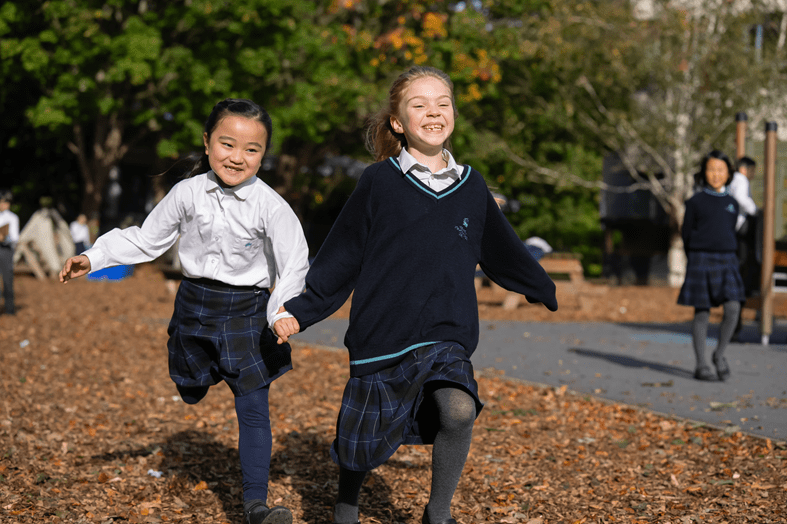JOIN OUR VIRTUAL OPEN EVENING - WEDNESDAY 14 JANUARY 2026: 5:00PM
Virtually, explore our school, meet our senior academic team and find out more about our outstanding educational programmes all from the comfort of your own home.

We know that confident students don’t just perform better – they’re happier and healthier, too.
The research backs this up. Studies show that confident children are much more likely to succeed academically. They’re also more motivated, resilient, and capable of bouncing back from adversity.
When children are confident and secure about who they are, they’realso more likely to have a ‘growth mindset’. This means they’re motivated to take on challenges and engage in new experiences. They’re also more likely to ask for help when they need it.
Self-confidence isbelieving in ourselves, our ideas, and abilities.
In school, this could be:
Putting your hand up to answer a question in class.
Believing you can speak or perform in front of people.
Feelingprepared to take on a challenge, like an exam.
Confidence is also about understanding and accepting who you are as a person.
This could be:
Feeling proud of how you look.
Doing the things you like without worrying what others think.
Making plans for the future, based on your individual goals.
The importance of confidence can’t be underestimated. But there are many factors that can have a positive or negative affecton a student’sself-esteem. These include:
Exam results and coursework marks.
Friendships.
Social media.
The level of support a young person needs and/or receives.
Body image and feelings about appearance.
Achievements and skills.
While good experiences, like doing well on a test, can build self-confidence in children, negative experiences can lower self-esteem. Your child’s confidence may change from day-to-day, too.
We want every child to feel positive and confident in their own unique abilities. We also want them to feel comfortable with who they are as individuals.
We strive to improve our children’s self-esteem in two fundamental ways:
As a school, we work hard to create an environment where every child feels comfortable, included, and inspired.
A truly international community
Home to students from more than 45 countries, NAIS Dublin is a diverse community where learners are exposed to a variety of cultures, experiences, and perspectives. Thisbroadens their view of the world, giving them the confidenceto interact with different people and environments.
A place where talents shine
Our school is a kaleidoscope of cultures and interests, providing a backdrop against which unique talents shine bright. We offer lots of opportunities forour students to discover their strengths, pursue passions, and do what they love. We challenge them to take control of their learning, too. Thisboosts confidence in their abilities and preparesthem for the future of their choice.
Wellbeing at the heart
Our educational approach is underpinned by a deep commitment to wellbeing. Our ‘six pillars of sustained wellbeing’ are embedded into the curriculum, giving our students the tools to look after themselves and grow in confidence. We build resilience and instil a sense of self-belief, empoweringeach child to live their bestpossible life.
Both our lessons and extra-curricular programmes are packed with experiences designed tobuild self-confidence in our children.
We want our students to seize new opportunities, too, and realise that anything is possible. And if something doesn’t work out, we always encourage them to try (and try!) again.
Confidence building activities include:
Global, regional, and local expeditions, which expose our students to different cultures, people, and ideas. These enriching opportunities build confidence and independence, as our young people spend time away from home, form strong bonds, and enjoy new experiences.
Nord Anglia competitions and festivals, which give our students the chance to showcase their skills on an international stage. These include Model United Nations conferences, which nurture public speaking and communication skills, and boost self-confidence.
Community service opportunities,whichdemonstrate the impact a person or people can have on others. From the Creativity, Activity, Service (CAS) element of the IB Diploma to our collaboration with UNICEF, hands-on opportunities to effect change show our students they can achieve anything.
A rich variety of clubs and extra-curricularactivities, whichenable our students to cultivate their interests and discover new passions.These include our sports teams, which keep ourchildren fit and healthy, and give them outstanding opportunities to grow in confidence.
We believe that building self-confidence in children is a team effort.Regular positive reinforcement, both at school and at home,will contribute to your child’s sense of accomplishment and self-worth.
Below, we’ve suggested a few practicalideas to build self-confidence in your child:
Embrace individuality.Encourage your child to appreciate whatthey’re good at, as well aswhat they find harder to do. It’s important they understand that everyone has different strengths and weaknesses.
Celebrate small achievements.Whether it’ssigning up for an after-school club or writing the first line of a tricky piece of coursework, help your child to realise thatevery smallaction isa step towards a bigger achievement.
Encourage passions.Encourage your child todo what they love.Their confidencewill growbytaking part in activities or learning experiences that align with their passions.
Be adaptable.Support your child as they considertheir options, review their goals, and adjust their efforts tomeet changing demands and circumstances.
Be positive.Show your child how to face setbacks with a positive mindset, seeing difficulties as ways to learn, not insurmountable obstacles.
-
As a community, we celebrate our students’ achievements, big and small. This contributes to positive self-image, instils belief, and increases self-esteem.We know that positive recognition inspires others, too,helping us cultivate a dynamic atmosphere where the sky is the limit.
-
For more information on building self-confidence in children, please get in touch with us Enquiry